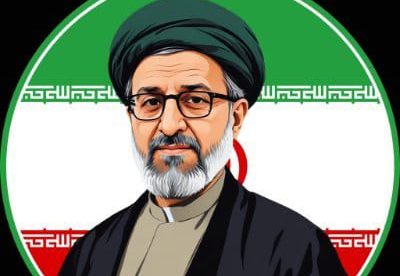Iran’s is engaging in covert social media activities and related influence operations aimed at undermining former President Donald Trump’s candidacy, according to a recent assessment by the U.S. intelligence community. The Office of the Director of National Intelligence (ODNI) revealed that Iranian leaders are working to influence the upcoming November election to avoid an outcome that could heighten tensions with the United States.
In a media briefing, an ODNI official explained that Tehran’s recent influence efforts include using covert social media accounts and other related activities. These operations are reminiscent of Iran’s 2020 election campaign, where a multi-pronged covert influence campaign was launched to thwart Trump’s re-election efforts. The intelligence community’s updated assessment highlights the continuous threat posed by Iran’s online disinformation tactics.
Historical Context and Denials
Iran’s interference in the U.S. elections isn’t new. During the 2020 election, Iran employed various covert strategies to damage Trump’s re-election chances. This historical pattern has remained unchanged, with Tehran consistently opposing Trump’s presidency due to his aggressive policies towards Iran, including the assassination of General Qasem Soleimani and the withdrawal from the nuclear deal.
Despite the evidence presented by U.S. intelligence, Iran has categorically denied any attempts to influence the U.S. elections. The Iranian Permanent Mission to the United Nations dismissed these accusations as psychological operations meant to bolster election campaigns artificially. This denial is part of a broader narrative where Iran seeks to deflect responsibility for its covert actions and influence operations.
Assassination Plot and Increased Security
Beyond social media influence, U.S. authorities have uncovered more direct threats from Iran, including a plot to assassinate former President Trump. Intelligence from a human source led to heightened security measures by the Secret Service around Trump. Although the attempted assassination by Thomas Matthew Crooks at a Pennsylvania rally on July 13 is not directly linked to Iran, it underscores the ongoing threats to Trump’s safety.
Iran has denied involvement in any assassination plots. However, the ODNI noted that foreign influence actors have exploited the assassination attempt narrative to further their objectives. These developments highlight the multifaceted nature of threats posed by foreign actors, combining online influence campaigns with direct security threats.
Iran’s Involvement in Domestic Protests
Iran’s covert influence efforts extend beyond election interference to stoking domestic unrest in the U.S. related to international conflicts. According to U.S. Director of National Intelligence Avril Haines, Iran has been attempting to incite protests over the Israel-Hamas conflict by posing as activists online and providing financial support to demonstrators. This tactic aims to exacerbate existing tensions and create instability within the U.S.
The ODNI’s statement on Monday emphasized Iran’s reliance on a network of online personas and propaganda mills to disseminate disinformation. These efforts are part of Tehran’s broader strategy to manipulate public opinion and influence U.S. domestic and foreign policies indirectly. The continued monitoring of these activities by U.S. intelligence agencies is crucial in countering Iran’s covert operations and maintaining national security.
By understanding and addressing these multifaceted threats, the U.S. can better safeguard its democratic processes and ensure the integrity of its elections and public discourse.
Russia Identified as Primary Threat to US Elections
Recent intelligence assessments by the Office of the Director of National Intelligence (ODNI) have underscored Russia’s ongoing status as the foremost threat to U.S. electoral integrity. The updated report, released on Monday, details a concerning trend of increasing covert and overt influence activities targeting American elections, a trend that has persisted since Russia’s extensive interference in the 2016 presidential election.
According to ODNI, Moscow continues to leverage sophisticated tactics through Russia-based “influence-for-hire” firms adept at customizing content to resonate with U.S. audiences. U.S. officials have highlighted the evolving capabilities of these firms in manipulating public opinion and disseminating targeted misinformation aimed at shaping electoral outcomes.
The Russian Embassy in Washington, DC, has been approached for comment, a customary step following such allegations. The Kremlin has consistently refuted accusations of election meddling leveled by U.S. authorities, maintaining its stance of non-interference in American electoral processes.
China’s Influence Tactics Under Scrutiny
Contrary to Russia’s aggressive posture, the ODNI assessment suggests that China’s approach to U.S. elections differs significantly. While acknowledging that China “probably does not plan to influence the outcome” of the upcoming presidential election, U.S. intelligence agencies remain vigilant regarding potential actions by China-linked propagandists and influence operators. There is concern that such entities could engage in activities aimed at undermining down-ballot candidates.
During a meeting between Chinese leader Xi Jinping and President Biden in November, Xi reassured Biden of China’s commitment to non-interference in the 2024 presidential election. This assurance forms part of China’s official stance on international relations, emphasizing respect for sovereignty and non-intervention in the domestic affairs of other nations.
As the U.S. electoral landscape continues to evolve amidst persistent foreign threats, ODNI’s updated assessment serves as a critical reminder of the complex challenges posed by global influence operations. The findings underscore the need for robust cybersecurity measures and heightened public awareness to safeguard the integrity of democratic processes against external manipulation














